HYPERBARIC OXYGEN THERAPY
helps with many conditions
COVID-19
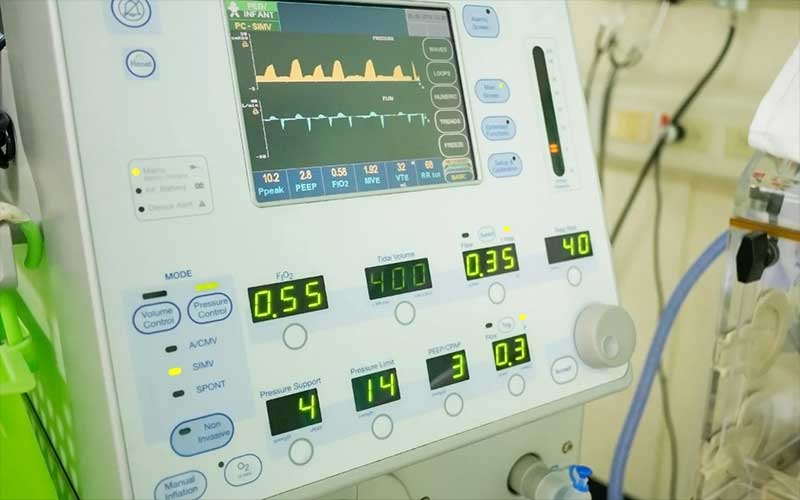
COVID-19 and its subsequent variants have taken the world by surprise and continues to overwhelm and confuse the scientific community. This virus is especially dangerous for the elderly and those with underlying conditions. Those who survive COVID sometimes have long-lingering side effects of both the virus and the medical procedures used to treat the virus. Breathing difficulties are often a factor, and many are finding that hyperbaric therapy offers some comfort and healing with regard to damage to the respiratory system.
ADD/ADHD

Many of our clients who struggle with ADD and ADHD have found great results from using mild hyperbaric therapy. After just a few treatments, children and adults alike feel more able to focus, more able to communicate clearly, and more at peace overall. College students have come in for treatments before a big exam, sometimes even to study inside the chamber! If you are the parent of a special-needs child and are considering mild hyperbaric oxygen therapy, you will be reassured to know that our hyperbaric chambers are large and roomy enough to allow you to join your child during hyperbaric therapy.
Allergies

Hyperbaric therapy is being used as an effective therapy in the treatment of allergies and in individuals who suffer from asthma. The high levels of oxygen provided with each treatment reduce the inflammatory process for allergy and asthma sufferers, allowing the body to heal itself. Additionally, sufferers of seasonal allergies can enjoy life during months with high pollen counts by controlling the inflammation of their nasal passages and airways with hyperbaric therapy.
Alzheimer's & Dementia

Inflammation can be either acute or chronic. Acute inflammation generally lasts no more than a few days, while chronic inflammation can last for months or even years, long after the initial trigger has passed. While inflammation serves an important role in protecting the body after an injury, when left untreated, it can lead to conditions such as cancer, heart disease, diabetes, and Alzheimer’s, as well as autoimmune disease.
Anti-Aging

As the average life expectancy increases, people are becoming more and more interested in finding ways to slow down the aging process. According to Medical News Today, “Scientists now know that many factors – including physical exercise, sleep, depression, and certain gene mutations – are associated with reduced telomere length, and, by extension, can lead to premature biological aging… Whether telomere length is a marker of biological aging or a cause of it remains to be seen.” Studies have shown that hyperbaric therapy can help increase a person’s energy, improve their quality of sleep, increase the rate of serotonin production, and potentially lengthen the telomeres. All of these possess the ability to improve a person’s overall health and well-being.
Arthritis

Hyperbaric therapy has been shown to reduce the pain and inflammation associated with arthritis and other chronic pain disorders. Some physicians may prescribe hyperbaric therapy off-label as an adjunct or alternative to drug treatments and other common arthritis therapies. In patients with rheumatoid arthritis under HBT therapy, the SOD activity was increased, whereas lipoperoxide values decreased. Furthermore, ESR and Lansbury’s index showed a remarkable recovery. These results suggest that HBT therapy may be an effective treatment for patients with rheumatoid arthritis.
Autism

There are multiple mechanisms of action for hyperbaric therapy with autism. The anti-inflammatory response initiated by an increase of systemic oxygen to the body can positively affect children with inflammatory conditions within their brains and gastrointestinal tracts. If there is neuroinflammation affecting the speech center of the brain, reducing that inflammation could result in increased speech and communication. The same can be said for inflammation affecting other areas of the brain.
Cancer

Hyperbaric Oxygen Therapy has gained traction as an adjunctive modality in the treatment and symptom management of cancer. Cancerous cells are anaerobic, meaning they thrive in oxygen-poor environments. Research is showing that flooding cancer cells with oxygen can make them easier to kill with chemo or radiation. Some experts also believe that the pressure of hyperbaric therapy can help push chemo through the body faster, leaving less time for healthy tissue to be poisoned. Many published studies are showing hyperbaric therapy’s ability to heal post-radiation damage inside the burned tissues and organs as well. Anecdotally, many patients report that their time in the chamber helps relieve pain, increase appetite, and boosts energy levels.
Cerebral Palsy

Recent studies have shown that hyperbaric therapy can, in some cases, alleviate the symptoms of CP. Anoxia (the lack of oxygen) to the brain is at the root of many of these symptoms and issues. Hyperbaric therapy has been shown to increase the levels of oxygen in the tissues of the body, including the brain. Even mild pressures can create an environment that allows oxygen to more easily pass through the blood-brain barrier, helping to reduce inflammation and improving the overall quality of the cells.
Diabetes
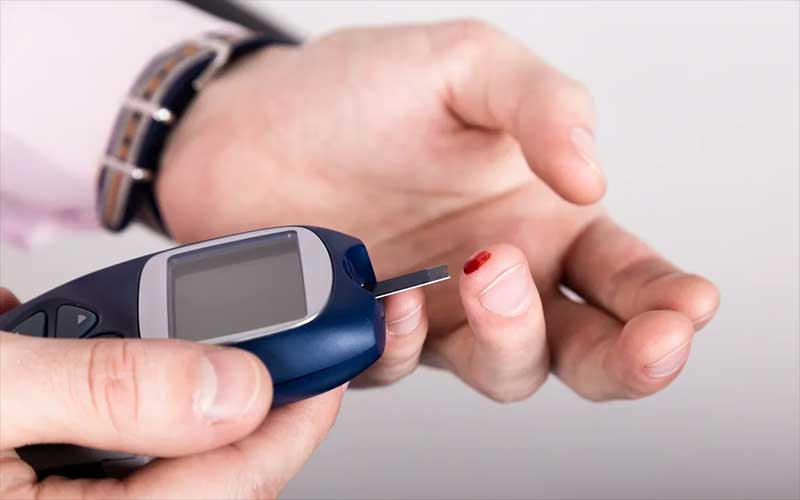
Hyperbaric oxygen therapy has been utilized in the treatment of diabetes for a variety of reasons. Studies have shown that extensive treatments can produce new blood vessels, a process called angiogenesis. By creating new routes for blood to flow through, the patient can experience better circulation, especially to limbs that have been affected by diabetic induced tissue damage. Many patients have reported a reduction or complete cessation of neuropathy. Increased circulation may also prevent the need for limb removal in patients with severe diabetic ulcers. Hyperbarics has been extensively studied for its healing potential of slow or non-healing wounds, especially in diabetes.
Diabetic Ulcers
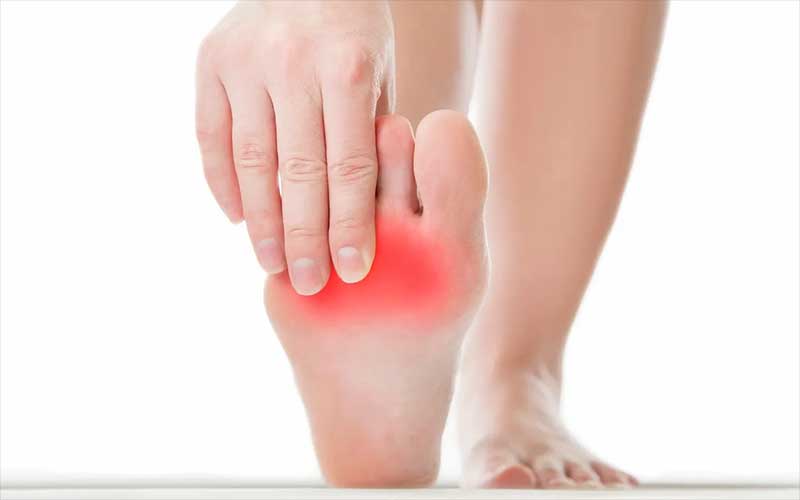
Foot ulcers are a significant source of morbidity, mortality, and diminished quality of life for patients with diabetes. Ulcer development is often due to a combination of diabetic neuropathy and peripheral vascular disease, which decreases the supply of oxygen to the affected extremity. Hypoxia can cause otherwise trivial lesions to progress rapidly to infection, gangrene, and limb amputation. Hyperbaric oxygen therapy increases the amount of oxygen dissolved in the plasma, allowing tissues to achieve levels of oxygenation that would otherwise be impossible.
Fibromyalgia

Hyperbaric therapy is a relatively new treatment for fibromyalgia. However, initial studies seem to illustrate that hyperbaric therapy has a positive effect on the symptoms of fibromyalgia, including muscle pain and tender points. Symptoms of fibromyalgia are chronic, widespread pain, and tenderness to the touch. Typically there is also moderate to severe fatigue. Those affected may also experience heightened sensitivity of the skin, tingling of the skin (often needle-like), achiness in the muscles, prolonged muscle spasms, weakness in the limbs, and nerve pain. Chronic sleep disturbances are also characteristic of fibromyalgia.
Heart Disease

Hyperbaric therapy infuses the body with oxygen, increasing levels up to 1,000% in body tissues, depending upon the chamber settings. The increased oxygen levels in blood and plasma oxygenate tissues that have been starved, inducing such healing processes as the proliferation of fibroblasts and increased angiogenesis. Fibroblasts are progenitor cells that promote connective tissue growth, and angiogenesis is the formation of new blood vessels. This method of improving oxygenation and healing processes supports a reduction in the damage suffered in heart disease and possible healing of damaged tissues.
Inflammation

Inflammation can be either acute or chronic. Acute inflammation generally lasts no more than a few days, while chronic inflammation can last for months or even years, long after the initial trigger has passed. While inflammation serves an important role in protecting the body after an injury, when left untreated, it can lead to conditions such as cancer, heart disease, diabetes, and Alzheimer’s, as well as autoimmune disease.
Migraines
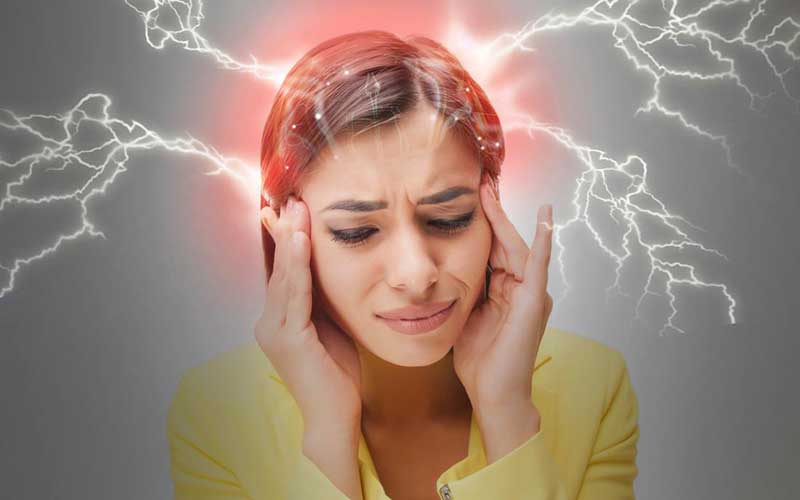
There’s little question hyperbaric therapy may provide quick relief from severe headache pain, or even stop a migraine in its tracks. The problem is getting into a chamber quickly enough to get ahead of the attack. Still, for patients who experience warning signs hours beforehand, hyperbaric therapy may offer a reasonable and non-pharmaceutical alternative. As time passes and hyperbaric clinics become more accessible, many people who suffer from migraine headaches will have an alternative option that avoids the myriad of possible side-effects of pharmaceuticals.
Multiple Sclerosis

Multiple sclerosis is an enigmatic disease that is thought to have immunologic origins with a resultant breakdown of the blood-brain barrier. Hyperbaric therapy’s effects on MS have been published in a variety of studies. While the data is confusing and conflicting, the fact remains that the most rigorous study on this subject matter showed the unequivocal beneficial effect of hyperbaric therapy.
Pre & Post Surgery

Reconstruction Surgery and Plastic Surgery in a healthy person may heal up to 75% faster using HBT before and after surgery. Reduced pain, less scarring, and less recovery time for the patient, as well as fewer infections, have been reported. Patients can return to work faster, with less bruising and/or swelling.
PTSD

Hyperbaric Oxygen Therapy for PTSD has garnered a lot of attention in recent years, especially for combat veterans. It is well documented that the anti-inflammatory power of oxygen reaches the brain quickly inside a hyperbaric chamber, even at lower pressures such as 1.3 or 1.5 ATA. Reduced inflammation, increased circulation, and the detoxification of built-up toxic brain chemicals can help quiet the overfiring emotions, reignite the dormant areas of the brain, and bring it back to a balanced state. Many patients note an improvement in mood, sleep, mental clarity, and overall well-being.
Radiation Damage

More than 11 million people living in the U.S. today have been diagnosed with cancer, and about half of them have received radiation therapy (radiotherapy). While improved radiotherapy techniques have increased treatment precision and reduced side effects caused by radiotherapy, the high doses of radiation used to kill cancer cells may still cause long-term damage to nearby healthy cells in some patients. By helping these affected areas to become more oxygenated, hyperbaric therapy has shown to be effective for these patients.–ULCA
Sports

Professional and amateur athletes alike utilize hyperbaric oxygen therapy for performance enhancement, fast injury healing, sore muscle recovery, and injury prevention. Hyperbarics has been shown to flush lactic acid out of muscles, increase collagen and stem cell production, create new blood vessels (angiogenesis), increase energy levels and stamina, boost immunity and decrease inflammation in and around injuries, including the brain. All of this leads to hyperbaric oxygen therapy being a great addition to an athlete’s wellness regimen.
Stem Cells
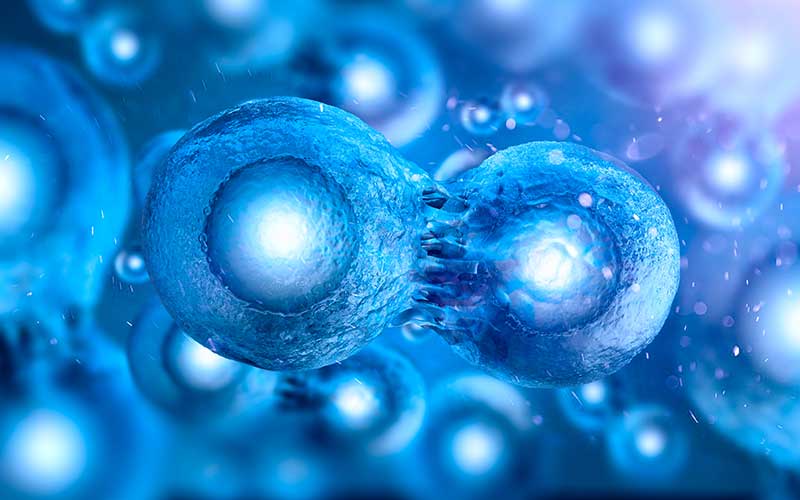
Stem cells are the “building blocks” of all tissues in the body. Recent studies have shown that stem cell production is increased through repeated hyperbaric treatments. An increase in stem cells can directly relate to faster wound healing, among other benefits.
Stroke

Hyperbaric Oxygen Therapy has been utilized during the emergency phase of strokes, as well as for the long-term damage after strokes. According to research, in order for a patient to utilize HBOT during a stroke event, they would need to be placed in the chamber within 3-6 hours of the initial injury. The pressurized oxygen can reduce the inflammation at the source of the bleed. It may also prevent the brain from having any long-term damage due to the lack of further inflammation in the tissues. If a patient is unable to treat their acute stroke with hyperbaric therapy, they may still see benefits from the modality, even decades after the event. Increased oxygen to the brain may reduce residual neuroinflammation and allow for more blood flow to the damaged tissues.
TBI (Traumatic Brain Injury)
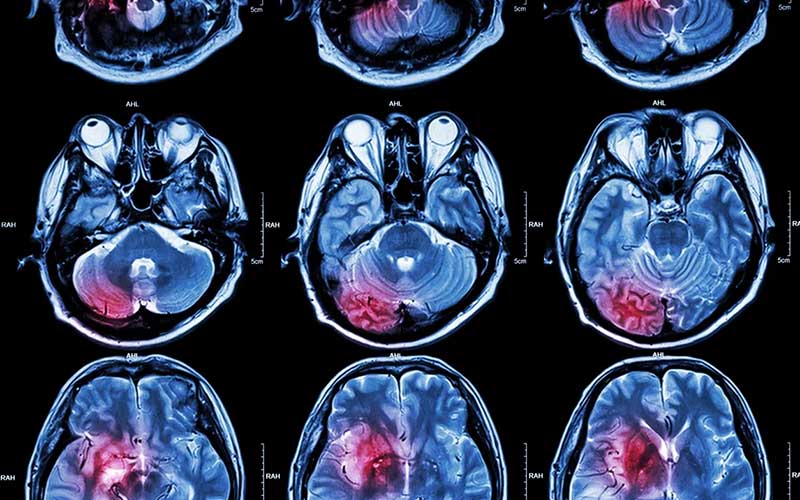
Hyperbaric Oxygen Therapy has been utilized for both emergency treatment immediately following a traumatic brain injury and for treatment for the long-term symptoms of an old injury. According to research, in order for a patient to utilize HBOT during an acute TBI, they need to be treated within 48 hours of the injury. The pressurized oxygen can reduce any inflammation that has already begun at the source of the injury. It may also prevent the brain from having any long-term damage due to the lack of further inflammation in the tissues. If a patient is unable to treat their acute TBI with hyperbaric therapy, they may still see benefits from the modality, even decades after the event. Increased oxygen to the brain may reduce residual neuroinflammation and allow for more blood flow to the damaged tissues.
Wound Healing

Healing wounds quickly and safely is one of the most well-known uses for hyperbaric therapy and it is well-researched. Oxygen is one of the most versatile and powerful agents available to the modern medical practitioner. By getting the area of the wound highly oxygenated, the cells can repair themselves at an accelerated rate. The oxygen can also help prevent the wound from becoming infected. Hyperbaric therapy has several specific biological actions that can enhance wound healing processes.
Chronic Stress / Adrenal Fatigue

Chronic stress can wreak havoc on a patient’s wellbeing and immune system. With the over abundance of stress hormones within the body, multiple systems may become dysfunctional. Hyperbaric oxygen therapy can create a state of relaxation and help regulate hormones to bring the body back into a balanced state.
Detoxification

Hyperbaric oxygen therapy can help boost the body’s detoxification process. When the body is under pressure, it’s receiving more bio-available oxygen. All of that incoming oxygen and pressure helps push toxins out of tissues and towards detox pathways. Most will be passed through the kidneys and output as urine (which is why we always encourage staying very hydrated after a session), but some will find their way out through the skin as sweat and through the GI tract as stool. Hyperbaric therapy is proving to be an excellent modality for emotional toxicity disorders like depression, anxiety disorders and PTSD. Research is showing that by bringing more oxygen to the brain, areas that have gone dormant are essentially being repaired.
Mold Illness

Hyperbaric Oxygen Therapy can help mold illness in many ways. HBOT can stimulate superoxide dismutase, an important antioxidant, which can help the body flush out the mycotoxins left in the tissues from mold spores. HBOT can also help in the treatment of mold infection by enhancing white blood cell action and enhancing the outcome of antibiotics. The anti-inflammatory power of being in the hyperbaric chamber can help reduce the painful symptoms in the ears, lungs, respiratory tract and in the muscles.
Lyme Disease

Hyperbaric oxygen therapy can be a very useful tool to combat the painful symptoms of Lyme Disease, as well as potentially treat the infection itself. Lyme bacteria are anaerobic, meaning they thrive in oxygen-depleted environments. Not only can the pressure potentially blast their hiding places within biofilm apart to expose the infection for treatment, it can also help push the leftover endotoxins out of the bloodstream and tissues out to the detoxification organs for elimination. Hyperbaric oxygen has been shown to help alleviate the uncomfortable side-effects of Lyme die-off (Herxing) as the infection is treated thanks to its anti-inflammatory properties.
Autoimmune Diseases

Hyperbaric Oxygen Therapy may be a very helpful therapy in combating the symptoms of autoimmune diseases by primarily fighting the chronic inflammation caused by the overactive immune system. ADs associated with infection may be treated with HBOT because the pressure and oxygen can reach deep into tissues and kill off the invading bacteria. Long-term treatments may decrease the intensity of flare ups as well as prolong the amount of time between the flare ups. Flooding the body with oxygen may reduce inflammation, decrease pain and support the immune system. Some patients have seen their Autoimmune Disorders go into remission after adding HBOT to their regimens. Many patients also report improved mental clarity, sleep, overall wellbeing, digestion and pain levels.
Dr. Paul Harch
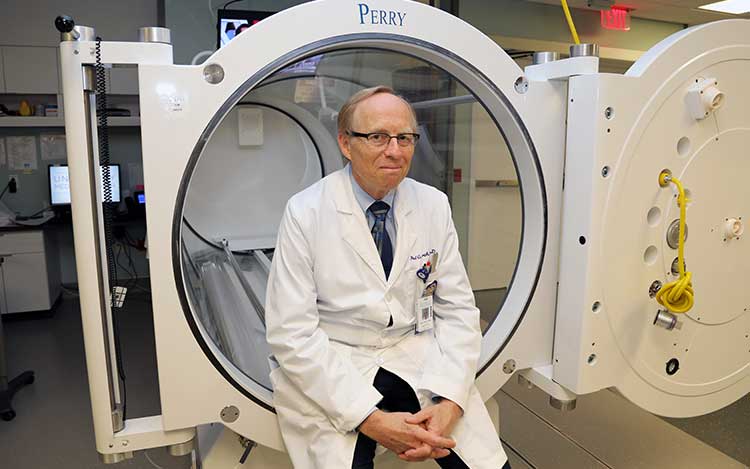
Clinical Professor and Director of Hyperbaric Medicine at LSU Health New Orleans School of Medicine, Dr. Paul Harch is a world-renowned medical doctor who has researched hyperbaric medicine extensively. To see some of his research and videos from the patients he has successfully treated, click below.
View Dr. Harch's Videos